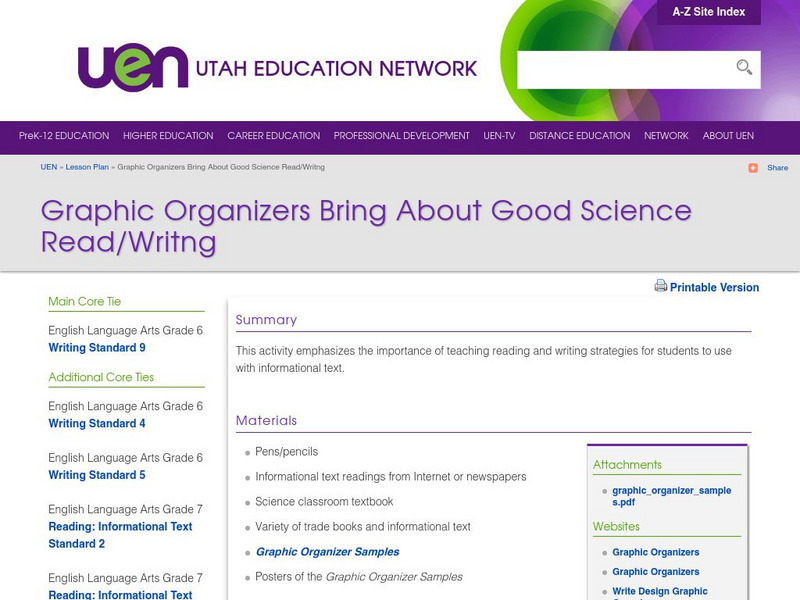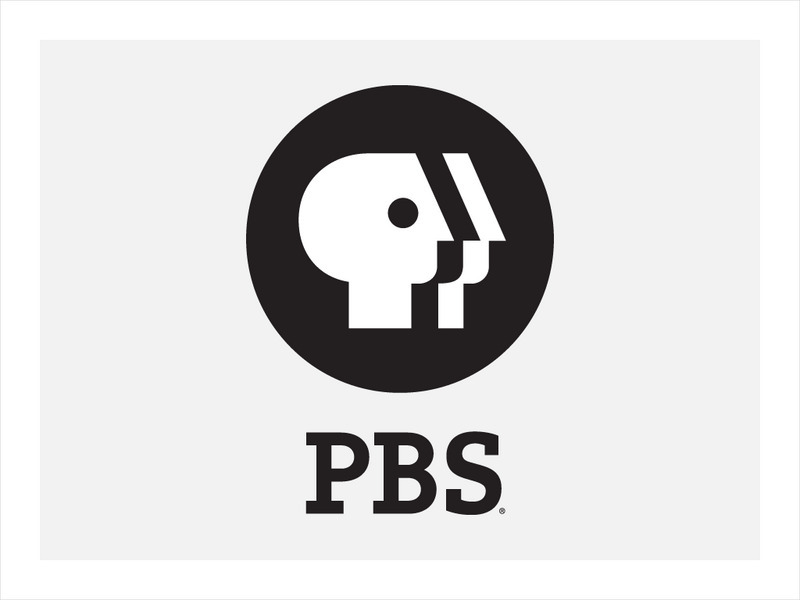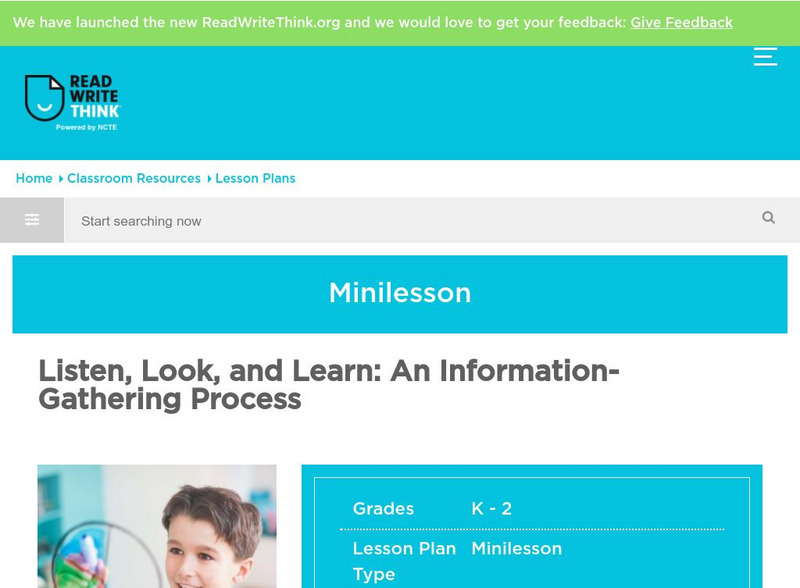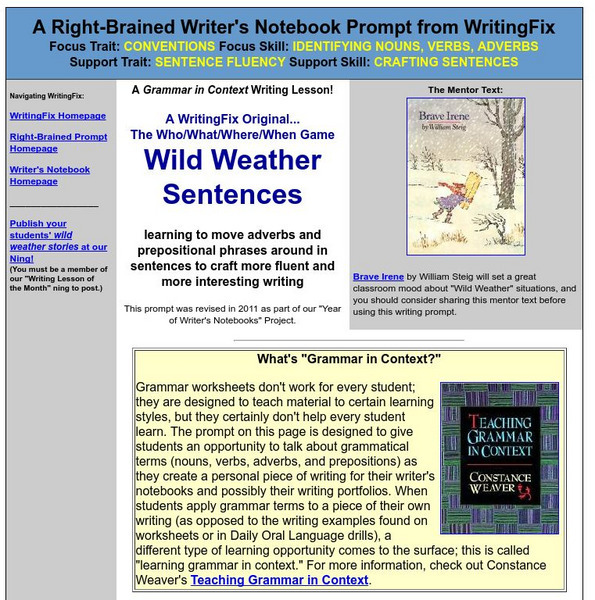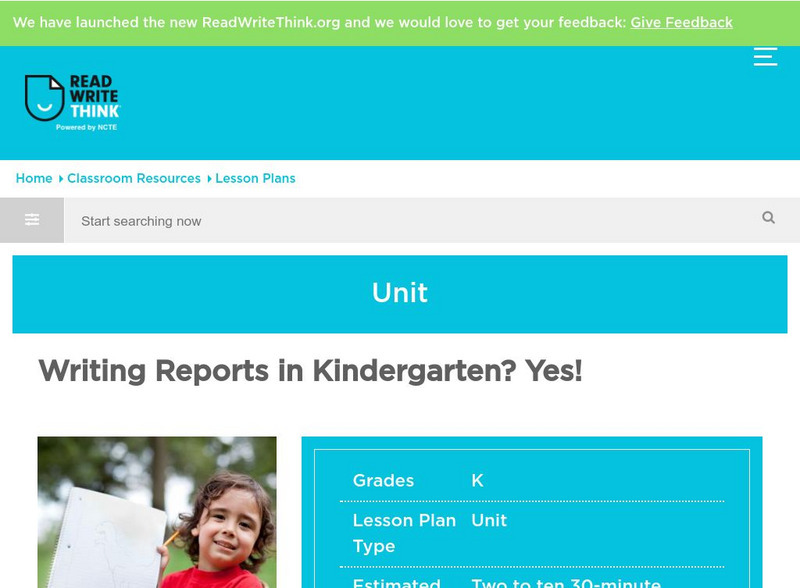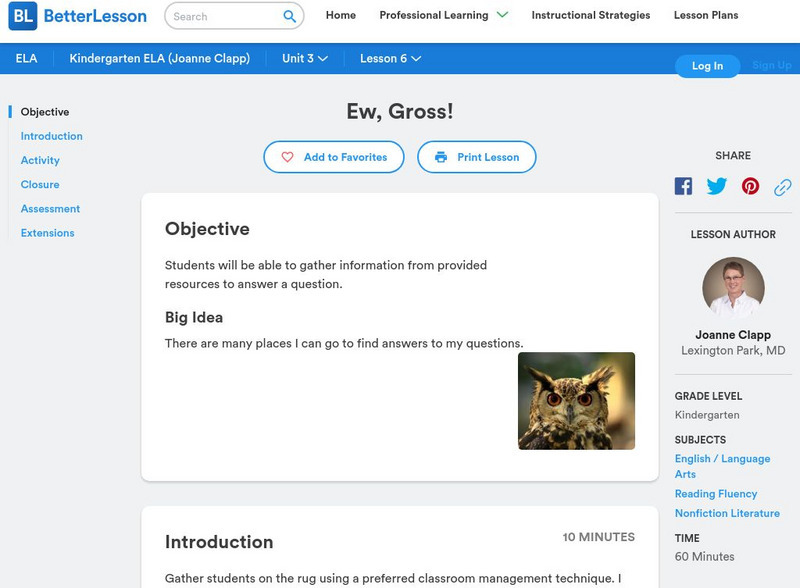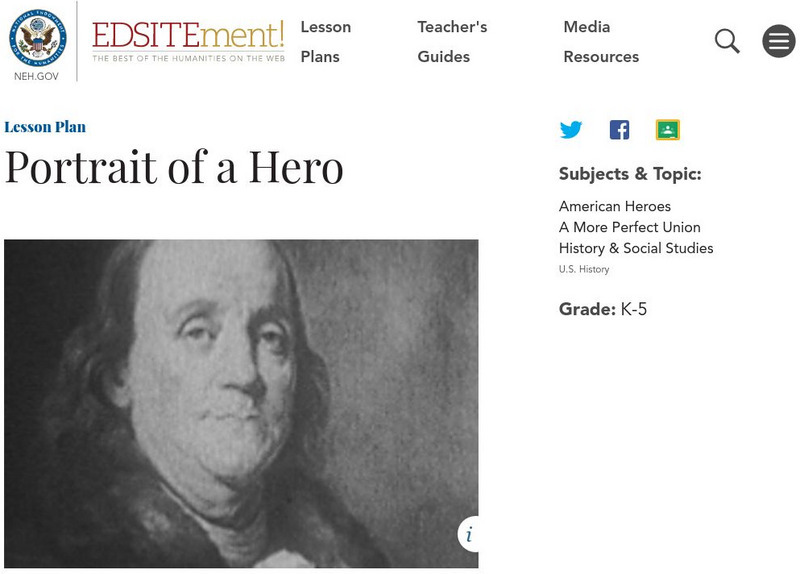College Board
Evaluating Sources: How Credible Are They?
How can learners evaluate research sources for authority, accuracy, and credibility? By completing readings, discussions, and graphic organizers, scholars learn how to properly evaluate sources to find credible information. Additionally,...
Better Lesson
Better Lesson: Audience, Tone, and Style in Informative Text
Students will read samples of informative writing and highlight examples of how tone and style are used by the authors. Students will then apply this knowledge by writing their own informative text. Multiple examples of student work and...
Texas Education Agency
Texas Gateway: Teaching Expository & Persuasive Texts: Writing Expository Essays
In an expository essay, a type of informational text, the writer clarifies or explains something by using facts, details, and examples in a clear and concise way. To write an effective expository essay, students need a basic...
Better Lesson
Better Lesson: Writing an Opinion Based on Facts From a Text
Students will plan a paragraph that states their opinion and cites evidence to justify their opinion about an informational text. This instructional activity uses biographies since students can easily be able to write down factual...
Utah Education Network
Uen: Graphic Organizers Bring About Good Science Read/writing
This lesson uses graphic organizers to engage students in reading comprehension strategies for informational text in science. Venn Diagram, Hierarchy, Time Line, Cluster Diagram, and Flow Chart reproducible pages are included with the...
Sophia Learning
Sophia: Comparing and Contrasting Texts
Two PowerPoint presentations and a video [2:57] on comparing and contrasting literary and informational texts as well as how to write a literary analysis. Includes links to external resources.
Better Lesson
Better Lesson: A Storm of Ideas
The first step in writing an informational text on the topic of learners' choice is helping the student choose a topic of interest. Students will brainstorm ideas that will be possible final topics.
CPALMS
Cpalms: Structures and Skeletons
In this interactive learning module, students read informational text about dinosaurs and examine paragraph structure. They will learn about different types of text structure for informational paragraphs, identify the most effective...
Other
Ccss Literacy E Handbook: Informational Text: Summarize
A short explanation of how summarize an informational text. Click on the Model link to see an example summary with explanation.
Science Buddies
Science Buddies: Computer Sleuth: Identification by Text Analysis
Here's a project where you can try your hand at being a detective with your computer. In this project you'll write a program to do some basic analysis of features of written text (for example, counting the length of each word in the...
TES Global
Tes: Non Fiction Unit 4 Formal/impersonal Writing: Tourists
[Free Registration/Login Required] Students will analyze tourism brochures to determine features related to nonfiction writing in this unit. Tourism websites may be used in lieu of the brochures. Cotswold and the North Leigh Roman Villa...
University of North Carolina
University of North Carolina: Writing Center: Handouts: Evidence
What kinds of evidence best support the points you make in a paper? Where can you find the evidence you need? This handout answers all these questions and more, including the difference between primary and secondary sources. You'll also...
CPALMS
Cpalms: Compare/contrast Life Cycle Texts
[Free Registration/Login Required] Students will learn to compare and contrast texts about life cycles using a Venn diagram. Then, using the Venn diagram, students will write an expository paragraph including an introductory sentence,...
PBS
Pbs Teachers: Story Writing With Arthur
This series of 12 downloadable activities teach students some basics of story writing, using books or videos from the PBS "Arthur" series as a springboard. Activities include creating story maps, asking questions about characters and...
Writing Fix
Writing Fix: Unlikely Diary Keepers
The writer will assume the role of a living creature (like an arthropod) or an abstraction (like a fraction). Writers will do research on what they have chosen as their roles, and learn new facts about these roles. The writer will...
ReadWriteThink
Read Write Think: Listen, Look, and Learn: An Information Gathering Process
This lesson models an information-gathering process for primary learners as they listen to and look at resources, seeking information pertinent to the questions on an information wheel. Guiding the listening, looking, and learning...
Writing Fix
Writing Fix: The Wacky "I Will Not" Chalkboard
Students can use this writing idea from the book Wacky We-Search Reports by Barry Lane to demonstrate understanding in any content area. Students use the idea of writing "I will not " sentences to show their knowledge of various...
Other
Suny: Conventions of Writing Papers About Literature
A professor's excellent explanation of how to write a professional sounding essay. Covers all aspects of an essay, and detailed examples give information on exactly how to write the essay.
Writing Fix
Writing Fix: The Who/what/where/when Game: Wild Weather Sentences
In this instructional activity, Teaching Grammar in Context by Constance Weaver provides foundational information for this instructional activity. Brave Irene, written by William Steig, is used as the mentor text of this instructional...
Better Lesson
Better Lesson: Revising Our Argument for Presentation Part 1
Students will compare and contrast the written form of Sojourner Truth's "Ain't I a Woman" to a live reading of the poem by an actress. Follow-up activities provided.
ReadWriteThink
Read Write Think: Writing Reports in Kindergarten
Lesson which provides three types of reports for early elementary students to share. These allow young students to see themselves as writers with something useful to contribute from an early age.
Better Lesson
Better Lesson: Ew, Gross!
In this lesson plan, students will be able to gather information from provided resources to answer a question. Using the book "Owls", the teacher will read the book while asking guiding questions. After the book, the students will have...
National Endowment for the Humanities
Neh: Edsit Ement:portrait of a Hero
Discussing real life heroes and heroines and viewing their pictures will help students learn about reading and writing biographies. A writing rubric assessment is included in this series of activities designed to teach about heroes and...
Thinkport Education
Thinkport: Democratic Processes
In this activity, students write informative/explanatory texts describing various aspects of the political process in the United States. This self-paced module is aligned to College and Career Ready Standards for Literacy in Social...




